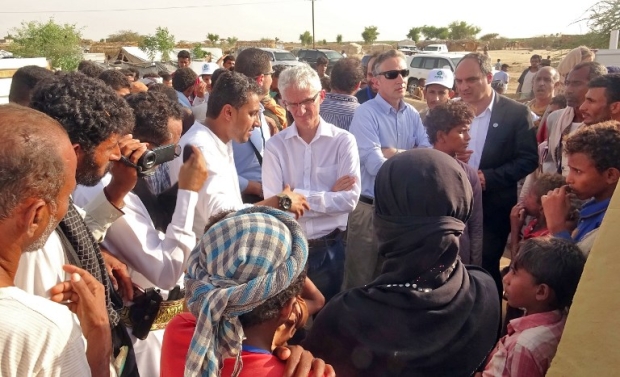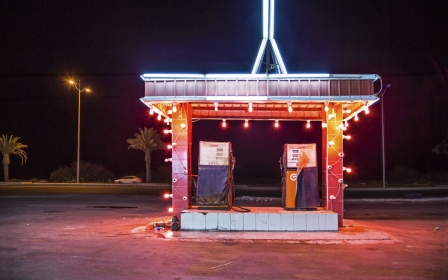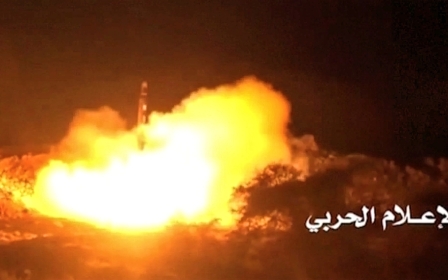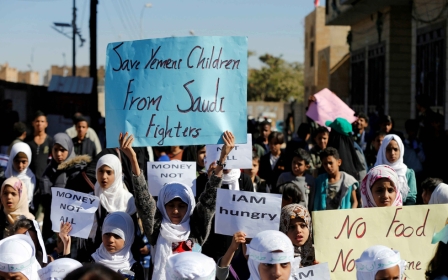EU parliament backs ban on Saudi weapons sales over Yemen war
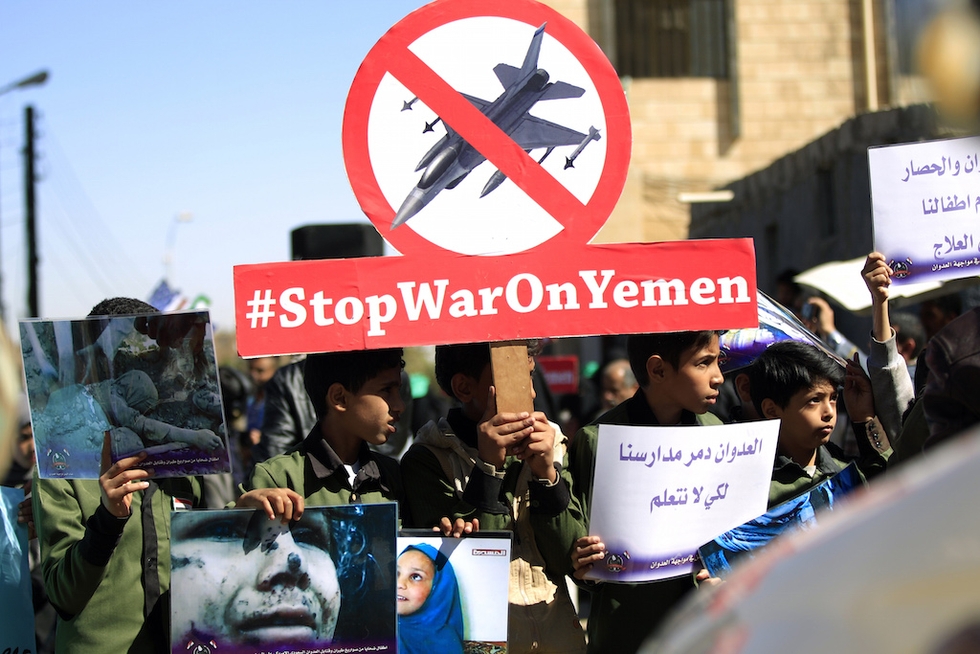
Campaigners have welcomed a call by the European Parliament for an arms embargo on Saudi Arabia, as the death toll in the war in Yemen continues to mount.
In a resolution adopted on Thursday, MEPs called for a political solution to the conflict in Yemen and a resolution to the "catastrophic" humanitarian criss in the country.
They also called on Iran to end its support for Houthi rebels and an end to indiscriminate attacks on civilians.
The Campaign Against the Arms Trade (CAAT) lauded the EU's move.
"The European Parliament has sent a clear, strong and unambiguous message to governments like the UK, that have been utterly complicit in the destruction of Yemen," said Andrew Smith, a spokesman for the campaign.
European weapons have played a central role in the bombardment. The situation has become even worse over recent months with the devastating blockade of Yemeni ports, and the worst cholera outbreak on record.
"Despite the pain and the destruction, the arms sales have only continued," said Smith. "It's time for Theresa May and the other leaders to take action and end their support for the Saudi regime and the terrible bombardment that has been inflicted on Yemen."
The FCO position is hypocritical because while they claim concern for Yemeni children the reality is that their priority is really to to protect the huge proportion of our arms sales that go to Saudi
- Molly Scott Cato, British MEP
The EU's resolution follows a visit to Saudi Arabia by the British prime minister in which she called on the Kingdom to "avert a human catastrophe" in Yemen.
May's office said in a statement that she "made clear that the flow of commercial supplies...must be resumed if we are to avert a humanitarian catastrophe" during her meeting with King Salman and the crown prince, Mohammed bin Salman.
"They agreed that steps needed to be taken as a matter of urgency to address this," it added.
Saudi Arabia is Britain's largest trading partner in the Middle East, and London has signed off on more than £4.6 billion ($6.2 billion) worth of arms sales to Riyadh since March 2015.
France, the secondest biggest exporter of arms to Saudi in the EU, still exports less than half that supplied by the UK.
Molly Scott Cato, a British Green Party MEP who campaigned on the issue, said that the vote was a step toward resolving the crisis in Yemen, but criticised the UK government position.
"I am very proud that the European Parliament has called previously for an arms embargo on Saudi and repeated the call this week in connection with the appalling humanitarian crisis in Yemen," she told Middle East Eye.
"But on the other hand I am deeply ashamed at the behaviour of my government."
She said that the UK Foreign Office had given her a letter in response to her queries in which they said they "leave it to the Saudis themselves to investigate human rights abuses" which Cato described as an "abdication of responsibility".
"The FCO position is hypocritical because while they claim concern for Yemeni children, the reality is that their priority is to protect the huge proportion of our arms sales that go to Saudi," she explained.
The main opposition Labour party has also regularly called for an arms ban to be imposed on Saudi Arabia.
Blockade needs to be 'wound down'
An estimated 10,000 people have been killed and two million people forced from their homes in the already poverty-stricken country.
Aid workers and medical supplies arrived in the Yemeni capital of Sanaa on Saturday after the easing of a nearly three-week military blockade imposed by the Saudi-led coalition.
However, the UN has called for the Saudis to fully lift the blockade on the country as seven or eight million people in the country are "right on the brink of famine".
"That blockade has been partially wound down but not fully wound down," said UN humanitarian chief Mark Lowcock on Friday.
"It needs to be fully wound down if we are to avoid an atrocious humanitarian tragedy involving the loss of millions of lives, the like of which the world has not seen for many decades."
But the UN has warned that Yemen cannot rely on humanitarian aid alone and needs commercial imports too. Imports are responsible for the vast majority of food, fuel and medicine in the country.
The coalition has said it wants tighter UN verification and inspection for commercial ships entering port of Hodeidah, which is controlled by the Houthi rebel group whom they have been targeting since intervening in the country in March 2015.
"I’ve called for five things in respect of the Saudi blockade," Lowcock added. "Some of them have happened like the resumption of humanitarian air services, like partial reopening of the ports of Hodeidah and Saleef on the Red Sea.
"What I’m interested in is finding solutions."
New MEE newsletter: Jerusalem Dispatch
Sign up to get the latest insights and analysis on Israel-Palestine, alongside Turkey Unpacked and other MEE newsletters
Middle East Eye delivers independent and unrivalled coverage and analysis of the Middle East, North Africa and beyond. To learn more about republishing this content and the associated fees, please fill out this form. More about MEE can be found here.


